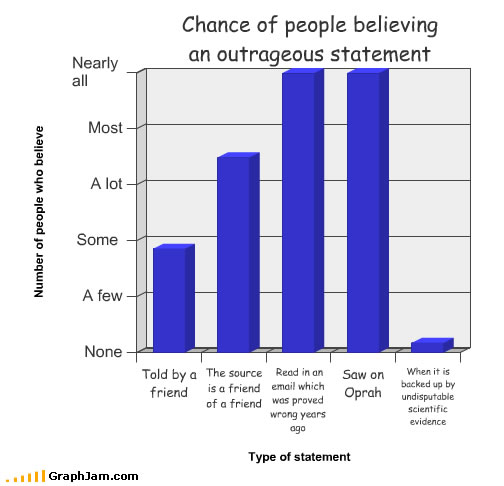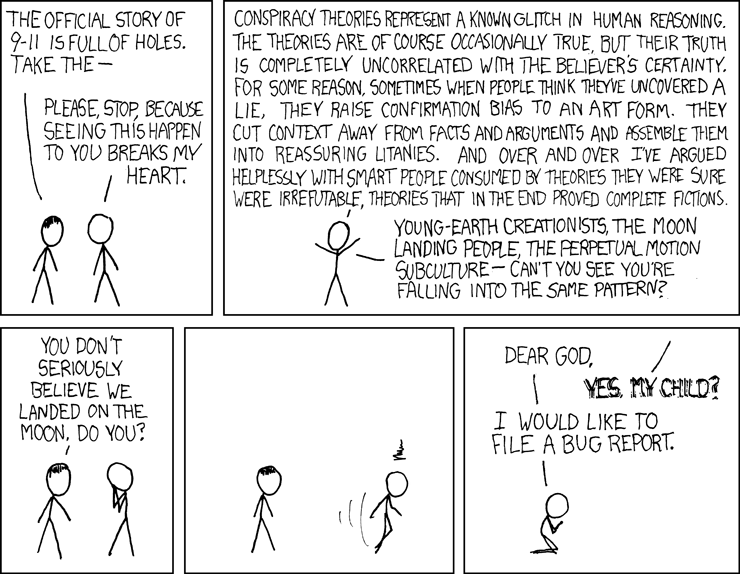Here are the answers to the handout on
inductive arguments and
abductive arguments (inferences to the best explanation) that we did as group work in class.
Inductive Args1) The three people I talked to at
The Roots concert told me they hated the opening act
Talib Kweli. Therefore, nobody at the concert liked the opening act.
This argument is overall bad because of the small sample size. We don't know exactly how many people went to the concert. Still, given what we know about concerts and the popularity of The Roots, we can probably safely conclude that the crowd was at least in the hundreds. A sample of 3 given this probable overall population is too small.
2) Every time I’ve seen a rolling billiard ball hit a stationary billiard ball, the stationary ball starts moving. So the next time I roll one billiard ball into another, the stationary one will move when hit.
This argument is overall good. Again, we don't know the exact numbers on this. We don't even know who the person making the argument is. Still, if we start with the assumption that the person making this argument is typical, we can probably safely conclude that she or he has watched or played pool a decent amount. So our sample is probably hundreds or thousands of billiard ball collisions.
Also, each billiard ball collision is fairly representative of pool ball collisions in general. This seems to be a good example of the principle of "You've seen it once, you've seen them all."
3)
Brandon Rush averaged around 13 points a game the past three years
playing college basketball for Kansas. So I expect him to average 13 points a game when he
plays in the NBA this year.
This argument is overall bad. The sample is actually large enough: Rush played close to 40 games each season in college. However, the sample of college game performance is not representative of NBA performance. Since there are better players and tougher competition in the NBA than there are in college, most players do not perform as well statistically in the pros as they did in college.
Abductive Args1) In a recent study, 100% of those who took a new birth control pill didn’t get pregnant. Only males participated in the study. Thus, the birth control pill must be very effective.
This argument is overall bad. Concluding ing that this pill effectively prevents pregnancy is not the best explanation of the evidence we have. One big background assumption we have is that males do not get pregnant. Hypothesizing that the participants didn't get pregnant because they are male is a much better explanation of the evidence, since it matches our expectations more.
(Scientists are actually developing a
male birth control pill. But this, of course, prevents men from getting their female sexual partners pregnant. There isn't a need for something that prevents the men themselves from getting pregnant...
or is there?)





![[Placeholder for Funny AltText]](https://blogger.googleusercontent.com/img/b/R29vZ2xl/AVvXsEi5WP9iy0qEyZQD2rbPhEtKJnG1k3PGCjQI3L-PPaB4gJrAYTTudH_AkVgmn2KZ9hFrV_9uXEc4KgfYh5ha1TUCKkr4OhtzQVZs7rZFrI09k8v7TsQbv15ziSaayeQoh3uKvnmRPOuHFjPp/s400/procat.jpg)















